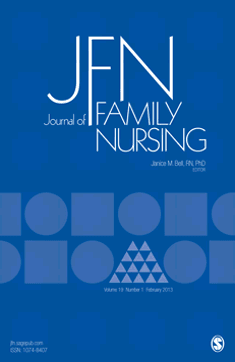
Journal of Family Nursing
Scope & Guideline
Transforming family care through evidence-based insights.
Introduction
Aims and Scopes
- Family-Centered Care:
The journal emphasizes the importance of involving families in health care processes, recognizing their critical role in patient care and decision-making. - Innovative Interventions:
Research on new interventions designed to support families in managing health challenges, including psychosocial and educational strategies, is a core focus. - Cultural Competence:
The journal promotes understanding and addressing the diverse cultural contexts of families, ensuring that nursing practices are relevant and sensitive to various backgrounds. - Psychometric Evaluation:
A significant aspect of the journal's contributions involves the development and validation of tools and measures to assess family dynamics and caregiving experiences. - Interdisciplinary Approaches:
The journal encourages collaboration across disciplines to address complex family health issues, integrating insights from fields such as psychology, sociology, and public health.
Trending and Emerging
- Digital Health Innovations:
There is a growing focus on the use of digital health resources to support family caregivers, as seen in studies addressing technology's role in caregiving during the pandemic. - Impact of COVID-19 on Family Dynamics:
Research exploring the effects of the COVID-19 pandemic on family roles, health, and caregiving experiences has surged, highlighting the need for adaptive strategies in family nursing. - Psychosocial Interventions:
Emerging themes include the adaptation of psychosocial interventions for families, emphasizing participatory methods and community-based support. - Intergenerational Care and Support:
Increasing attention is being paid to intergenerational relationships and the roles of different family members in caregiving, particularly for aging populations and those with chronic illnesses. - Cultural Diversity in Family Caregiving:
There is an expanding interest in the experiences and challenges faced by culturally diverse families in caregiving contexts, reflecting the journal's commitment to inclusivity and cultural competence.
Declining or Waning
- Traditional Family Structures:
Research centered on traditional family structures and roles is becoming less prevalent, as the journal increasingly addresses the complexities of diverse family forms and dynamics. - Single-Dimensional Care Models:
Older models of care that focus solely on the individual patient are being replaced by more holistic approaches that consider the family unit as a whole, leading to a decrease in studies that do not incorporate a family-oriented perspective. - Generalized Health Interventions:
Publications focusing on broad health interventions without a specific family context are declining, as the journal seeks to highlight tailored interventions that recognize family involvement. - Static Models of Family Functioning:
Research employing static or unidimensional models of family functioning and health is waning, as emphasis shifts toward dynamic, context-sensitive frameworks that adapt to changing family circumstances.
Similar Journals
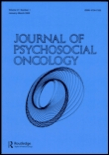
JOURNAL OF PSYCHOSOCIAL ONCOLOGY
Uncovering the emotional dimensions of cancer treatment.JOURNAL OF PSYCHOSOCIAL ONCOLOGY, published by Routledge Journals, Taylor & Francis Ltd, serves as a pivotal platform in the interdisciplinary field of psychosocial oncology, providing critical insights into the psychological, social, and emotional aspects impacting cancer patients and their families. With a storied history dating back to 1983 and converging until 2024, this journal holds a prestigious positioning, ranked in the Q2 category for Applied Psychology and Q3 for both Oncology and Psychiatry & Mental Health in 2023, highlighting its integral role in these overlapping fields. Despite not currently offering an open access model, the journal continues to attract a broad spectrum of scholars with its impactful research, evidenced by its Scopus rankings within the 50th to 58th percentile across related categories. Researchers, clinicians, and students alike will find the journal’s focus on the psychosocial dimensions of cancer to be invaluable, as it advances knowledge and practice aimed at improving patient outcomes and well-being in the cancer care continuum.

Nursing Reports
Leading the Charge in Nursing InnovationNursing Reports is a prominent open-access journal dedicated to disseminating scholarly research in the field of nursing and healthcare. Published by MDPI since 2020, the journal is based in Italy and features an ISSN of 2039-439X and an E-ISSN of 2039-4403. With rapid advancements in nursing practices and education, the journal serves as a vital platform for researchers, professionals, and students to share innovative findings and insights that enhance patient care and nursing methodologies. Recognized for its quality, the journal is ranked in the Q2 category in Nursing (Miscellaneous) for 2023, alongside a respectable position in the Scopus ranks, holding place #53 out of 139 in General Nursing, placing it in the 62nd percentile. The journal's commitment to fostering a collaborative research environment is underscored by its open-access model, allowing for unimpeded access to cutting-edge nursing research worldwide. As "Nursing Reports" continues to grow from its inception into its converged years spanning from 2014 to 2024, it plays a crucial role in the progression of the nursing profession and the overall healthcare landscape.

Revista de Pesquisa-Cuidado e Fundamental Online
Elevating standards of care through collaborative research.Revista de Pesquisa-Cuidado e Fundamental Online, published by the Universidade Federal do Estado do Rio de Janeiro, is a prominent journal dedicated to advancing knowledge and practice in the field of nursing and healthcare. With its Open Access model since 2009, this journal provides an invaluable platform for researchers, professionals, and students to share innovative findings and insights that address critical issues in patient care and nursing education. Though its specific impact factor is not listed, the journal's commitment to open access fosters greater visibility and accessibility of research, ensuring that vital information reaches a wide audience. The journal aims to enhance the quality of care and to support the ongoing development of nursing as a scientific discipline. Located in Rio de Janeiro, Brazil, the journal also reflects regional health paradigms while contributing to global discourse in healthcare research.
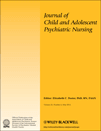
Journal of Child and Adolescent Psychiatric Nursing
Championing excellence in child and adolescent psychiatric nursing.Journal of Child and Adolescent Psychiatric Nursing is a vital resource for those engaged in the fields of nursing, psychiatry, and pediatrics, dedicated to the advance of knowledge surrounding the mental health needs of children and adolescents. Published by WILEY, this peer-reviewed journal, with ISSN 1073-6077 and E-ISSN 1744-6171, has built a reputation for excellence since its inception in 1988 and continues to contribute significant insights through 2024. The journal holds an impressive Q1 ranking in Pediatrics and a Q2 ranking in Medicine (miscellaneous), underscoring its impact within these critical areas. Enhancing its relevance, it ranks #12/25 in Nursing - Pediatrics and #17/45 in Nursing - Psychiatric Mental Health, highlighting its important niche. Although it currently does not offer open access, the journal remains essential for researchers, clinicians, and students focusing on the complexities of mental health nursing for younger populations, ultimately aiming to improve care strategies and outcomes. Discover compelling research and discussions that shape the future of psychiatric nursing practice, promoting the well-being of children and adolescents.
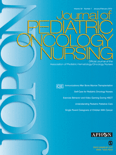
Journal of Pediatric Oncology Nursing
Championing the future of pediatric oncology nursing through open access research.The Journal of Pediatric Oncology Nursing, published by SAGE Publications Inc, serves as an essential resource for healthcare professionals and researchers dedicated to the field of pediatric nursing, particularly within oncology. With its ISSN of 1043-4542 and E-ISSN of 1532-8457, this journal has established itself as a key platform for disseminating high-quality research, innovative practices, and case studies that address the unique challenges faced in caring for children with cancer. Despite its coverage in Scopus being discontinued in 2021, the journal previously ranked 4th in the Nursing _ Pediatrics category, illustrating its impact with an 85th percentile rating, and it holds a 10th place rank in Nursing _ Oncology, demonstrating its ongoing relevance in the field. The journal's commitment to open access ensures that vital research findings are available to a global audience, assisting in the improvement of nursing practices and patient care. Engaging both seasoned professionals and aspiring researchers, the Journal of Pediatric Oncology Nursing continues to be a cornerstone for advancing knowledge and enhancing the quality of care for pediatric oncology patients.
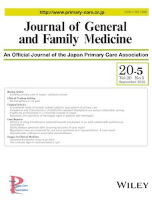
Journal of General and Family Medicine
Leading the Way in Family Medicine Research and Practice.The Journal of General and Family Medicine, published by Wiley, is a distinguished Open Access journal that has been advancing research and practice in the fields of family medicine, geriatrics, and internal medicine since its establishment in 2015. With an ISSN of 2189-7948, this journal provides a vital platform for disseminating impactful research that enhances the quality of healthcare for diverse populations. The journal has achieved commendable rankings, including Q2 in Family Practice and Q3 in both Geriatrics and Gerontology and Internal Medicine for 2023, reflecting its significance in the medical community. Researchers and practitioners are encouraged to explore its extensive array of articles that address contemporary issues, innovative practices, and emerging findings in general and family medicine. The open access model ensures that valuable research is accessible to all, facilitating knowledge sharing and collaboration among healthcare professionals and academic scholars alike.
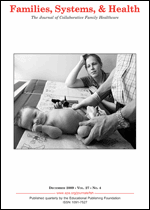
Families Systems & Health
Innovating practices to enhance family health outcomes.Families Systems & Health is a pivotal journal published by the Educational Publishing Foundation of the American Psychological Association, focusing on the intersection of family dynamics and health outcomes. Established in 1996, this peer-reviewed journal provides a platform for researchers, practitioners, and students to explore and disseminate innovative research findings, theoretical frameworks, and applied practices that enhance our understanding of family systems in relation to health and mental health. With a current impact factor situated within the 27th percentile for its categories of Applied Psychology and Psychiatry and Mental Health, Families Systems & Health remains a crucial resource for professionals seeking to apply family-oriented approaches in clinical settings. As the journal continues to evolve through its converged publishing years, it aims to contribute significantly to the empirical dialogue surrounding the health of families, ultimately fostering advancements in both academic research and practical applications. Access to the journal is not open, ensuring a curated dissemination of quality research that emphasizes its commitment to advancing knowledge in this essential field.

Investigacion y Educacion en Enfermeria
Fostering collaboration for nursing excellence.Investigacion y Educacion en Enfermeria, published by Universidad de Antioquia, Facultad de Enfermería, stands as a pivotal open-access journal since 1983, contributing significantly to the field of nursing and healthcare education within Colombia and beyond. With its ISSN 0120-5307 and E-ISSN 2216-0280, this journal aims to foster the dissemination of high-quality research, aiming to enhance nursing practices and education aligned with a wide array of domains including Community and Home Care, Family Practice, Geriatrics, and Maternity and Midwifery. The journal's impressive performance in the 2023 Scopus rankings places it in the top quartiles in several categories, reflecting its importance and influence, particularly in Nursing and Health Sciences. By encouraging collaboration and dialogue among researchers, practitioners, and students, Investigacion y Educacion en Enfermeria aspires to serve as an essential resource for advancements in nursing education and service delivery, making vital contributions to the evolving landscape of healthcare.
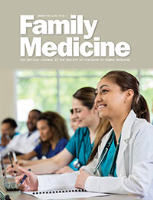
FAMILY MEDICINE
Innovating Family Practice for a Healthier TomorrowFAMILY MEDICINE is a prestigious peer-reviewed journal published by the SOC TEACHERS FAMILY MEDICINE, dedicated to advancing the field of family practice. With an ISSN of 0742-3225 and an E-ISSN of 1938-3800, this journal serves as a vital resource for researchers, healthcare professionals, and students involved in family medicine. Founded in 1985, it has consistently contributed to the growth of knowledge in this critical area, showcasing a wide range of original research, reviews, and practical applications. Recognized for its impact, the journal holds a Q2 quartile ranking in Family Practice, placing it in the top tier within its category, and ranks 22nd out of 56 in the Scopus database, reflecting its influence and relevance. While the journal operates under a subscription model, it remains committed to providing high-quality discourse and insights that shape the practice of family medicine. With a focus on current issues and evidence-based practices, FAMILY MEDICINE continues to be an essential publication for those dedicated to improving patient outcomes and advancing the field.
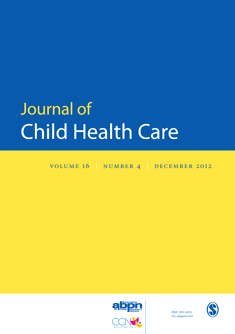
Journal of Child Health Care
Empowering child health care with evidence-based insights.The Journal of Child Health Care, published by SAGE Publications Ltd, is a leading academic journal focused on advancing the field of pediatric health. With an ISSN of 1367-4935 and an E-ISSN of 1741-2889, this esteemed journal has maintained a reputation for excellence since its inception in 1997. Covering a wide range of topics in pediatric nursing and child health, it is proudly ranked in the Q1 category of Pediatrics and Q2 in Pediatrics, Perinatology, and Child Health as per the 2023 category quartiles. The Scopus ranking places it among the top resources in the fields of Nursing and Pediatrics, with an impressive 90th percentile ranking. Researchers, healthcare professionals, and students rely on this journal for cutting-edge insights, innovative practices, and evidence-based research that significantly contribute to improving child health outcomes. Although it does not currently offer an open access option, its rigorous peer-review process ensures the highest quality of published research. With contributions shaping the future of child health care, the Journal of Child Health Care stands as a vital resource for those committed to enhancing pediatric wellness in the United States and beyond.